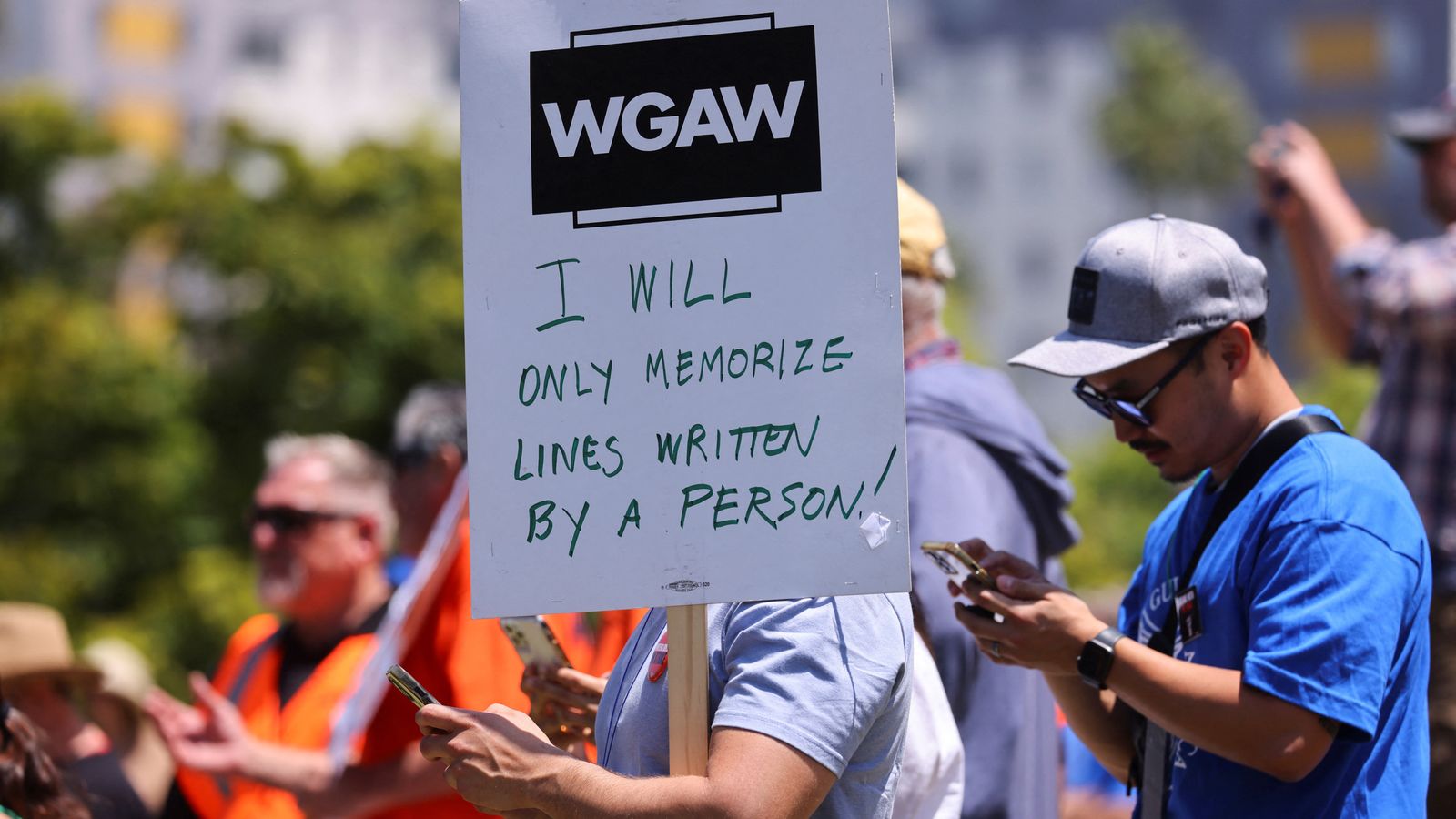US actors poised to strike as talks between SAG-AFTRA and Hollywood studios fail

American actors are poised to go on strike after negotiations between parties broke down.
Actors’ trade union SAG-AFTRA – who represent 160,000 performers – say they have voted unanimously to recommend a strike after talks with Hollywood studios failed to reach an agreement. The vote will take place later today.
If a strike goes ahead – which is looking increasingly likely – and actors join the picket lines of striking US writers – Hollywood would almost immediately shut down.
The effect would be felt globally – with one of the potential first casualties of strikes being the London premiere of one of the biggest movies of the summer, Oppenheimer, which is due to take place tonight.
Writers in America have now been striking for two months, and should the actors’ strike go ahead, it would be the first time since 1960 that both guilds have walked out simultaneously.
Two of the actors’ big demands are higher pay and safeguards against unauthorised use of their images through artificial intelligence (AI).
A statement from SAG-AFTRA president Fran Drescher called the studio’s response to actors’ demands “insulting and disrespectful,” claiming they had been “stonewalled completely” on certain issues.
She said: “SAG-AFTRA negotiated in good faith and was eager to reach a deal that sufficiently addressed performer needs, but the AMPTP’s responses to the union’s most important proposals have been insulting and disrespectful of our massive contributions to this industry.
“The companies have refused to meaningfully engage on some topics and on others completely stonewalled us. Until they do negotiate in good faith, we cannot begin to reach a deal.”
Advertisement
The Screen Actors Guild – American Federation of Television and Radio Artists (SAG-AFTRA) contract with the Alliance of Motion Picture and Television Producers (AMPTP) came to an end on Wednesday 12 July, after being extended from the original expiry date of Friday 30 June.
Potentially the biggest sticking point in negotiations is over AI, with actors keen to see a guarantee that AI will not be used to replace the duties performed by actors, potentially rendering them obsolete.
Stars including Tom Cruise and Keanu Reeves are among the actors who have recently been the subject of widely viewed unauthorized deepfakes – realistic yet fabricated videos created by AI algorithms.
Actors’ base pay – particularly around streaming royalties which are much lower than traditional broadcast rates – is also a key factor in negotiations.
The streaming boom has provided an increased pool of work for performers – however, series have become shorter, breaks between seasons longer, and the unions say that although series budgets are increasing, that increase is not being reflected in the share of the money coming to performers.
An additional factor is the question over whether actors should be paid for self-taped auditions (the time, equipment and production costs of taping previously fell to casting and productions teams, but has now been passed on to the performers).